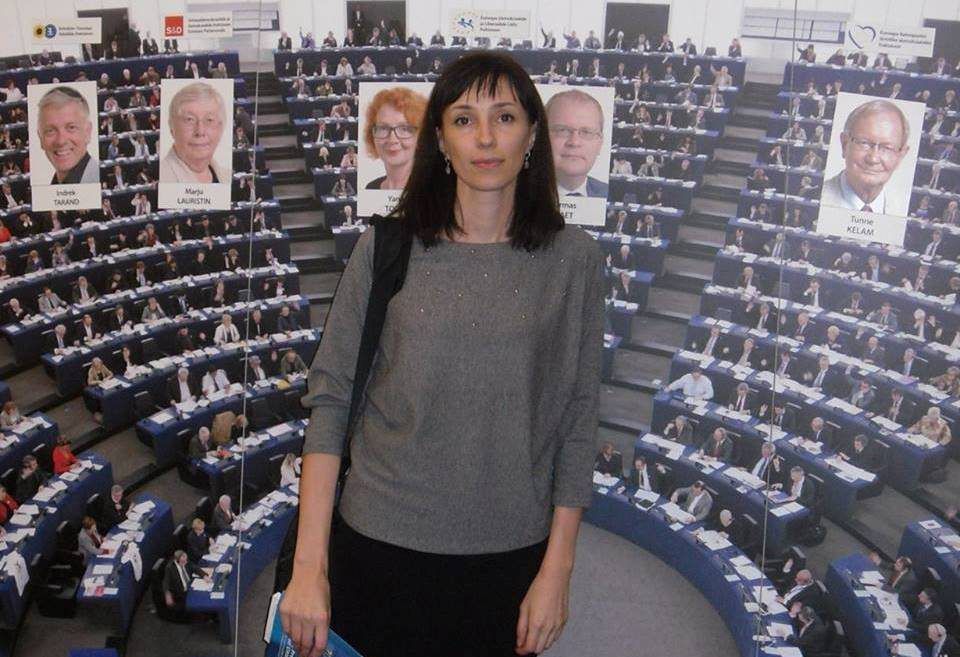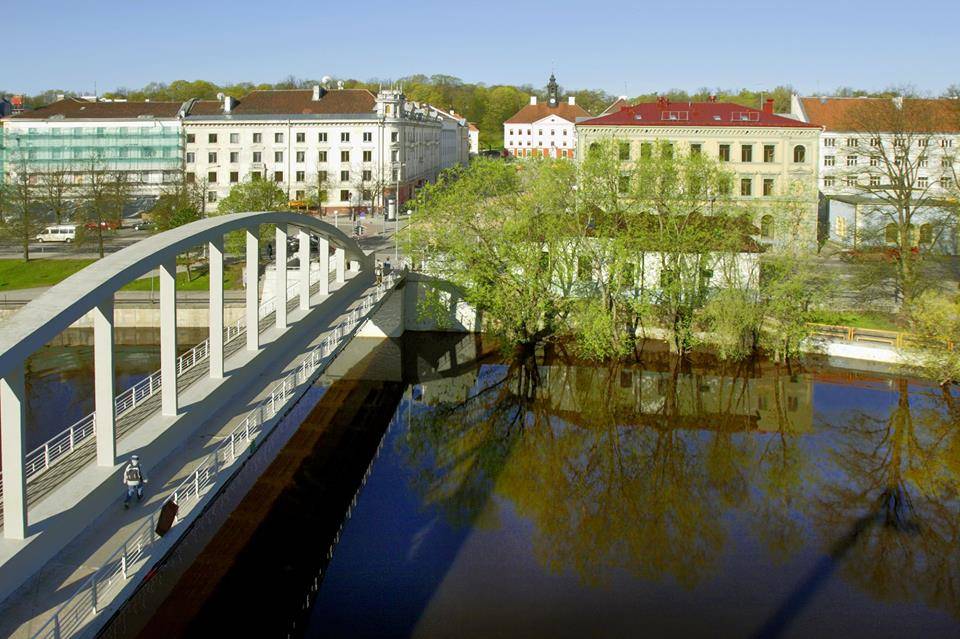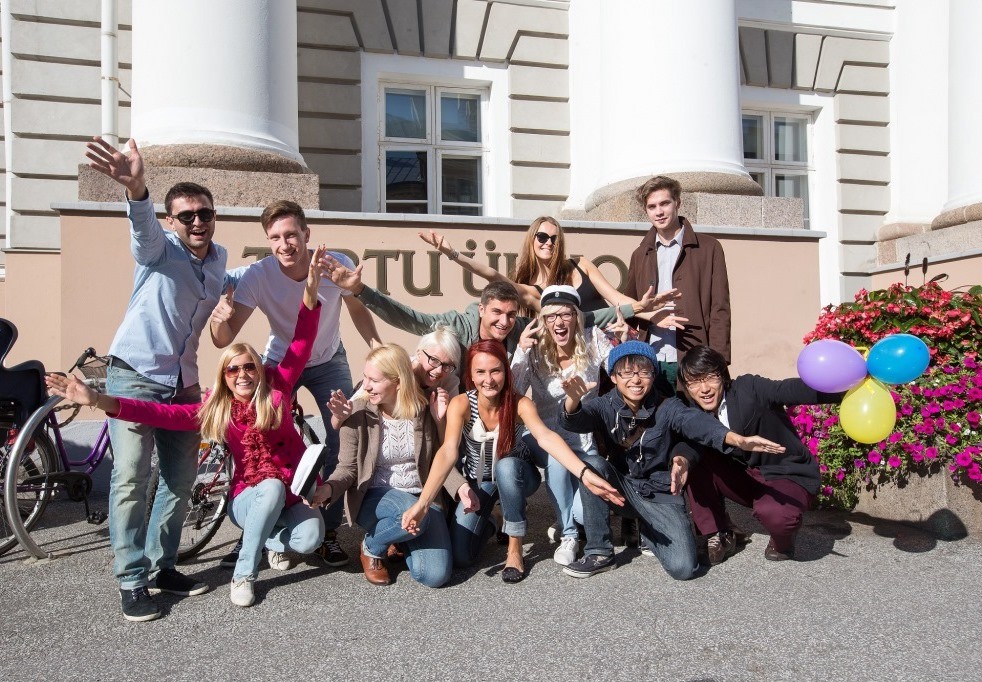Liudmyla Petrychenko, a second year master’s student from Ukraine, has had pleasant experiences with the Estonian people and less pleasant experiences with Estonian immigration bureaucracy.
A new project within the EU-Russia studies programme at the University of Tartu analyses personal stories that are based on people’s experience of living in Estonia.
The project is aimed at describing the multicultural society within Estonia – identities and integration in the Estonian cultural and political society. The goal is to collect a wide range of stories about non-native residents who call Estonia their home – individuals with diverse backgrounds who live, work or study in the country.
There is one thing common, however – they all claim some form of Estonian identity: be it national or cultural. These groups include, for example, the young generation of Russians, business professionals or academic individuals who may struggle with their identity and integration into the Estonian society. The master’s students at the programme have now conducted 30 interviews. Over the coming months, Estonian World will publish a number of these personal stories to give our readers hindsight of people’s lives.
People represent their country, not government
Originally from southern Ukraine, Liudmyla Petrychenko (33) came to Estonia in the summer of 2015 to study at the University of Tartu in the Baltic Sea Region programme. She found out about the university and its courses by chance on the web and decided to apply for her current programme. Today, Liudmyla is content with her life in Estonia. Because it covers many historical, political and cultural aspects of the Baltic states, her study programme has helped her discover and understand the country in which she lives.
“It is 100% necessary to know about the history and traditions of the country where we live. Educated people should know their own history as well as that of its neighbours. Estonians are really friendly and interesting. I like their positivity, creativity and their personal responsibility which also surprised me,” she says.
There is also another important aspect that helped Liudmyla create a bond with the native population: she found a big support among Estonians regarding the war in Ukraine. What she appreciates the most about locals is the fact that they do not consider Ukraine for the government it has, but for the people that live there. “I have visited many European countries but when I came to Estonia, I realised that the people of this small country are different from what I have seen before. They understand that I represent my country and not my government. This is unique.”
Being a non-native in Tartu
Petrychenko feels that to communicate with locals it does not require any specific knowledge of Estonian because everybody understands and speaks English and Russian. However, during the first semester, she attended an Estonian language course for beginners to learn some basic and helpful expressions. “I took the 0 –A1.1 level of course, because I believe that knowing at least a couple of words in Estonian is respectful towards the host country. It was quite hard to practice though, because as soon locals understand that you are a foreigner, they immediately switch to English or Russian.”
Despite the difficulty to improve her Estonian language skills, being a foreigner in Tartu does not represent a problem for her: she does not feel socially excluded, she takes part in many events inside and outside the university, and she also had a job during the first semester. Regarding the job experience, she admits that it was hard to work while still being a student. “I quit my job because I could not make it. I was working at home for a Ukrainian company, but it is not possible to combine your job with your courses, exercises, study etc. I found it very stressful.”
Estonian bureaucracy is slow
As a Ukrainian, she has, however, found several differences with Estonians, especially in “thoughts and perception of the world” as well as in education system and lifestyle. And she concedes she sometimes faces hard moments.
The main problem she has had concerns the Estonian visa. According to Liudmyla’s experience, Estonian bureaucracy takes a long time to issue a necessary document. She faced the usual worries just before last Christmas. “I was waiting for my new identification card, even though the deadline was at the beginning of December. I couldn’t even go home for Christmas, while my daughter was waiting to celebrate it with her mom. Can you imagine how tragic could that be?”
Liudmyla Petrychenko doesn’t hide her feeling that institutionally, Estonia still considers Ukraine as a sort of third world country. However, being surrounded by a multicultural atmosphere helps her a lot in coping with everyday life.
When asking her whether she will stay in Estonia after her graduation, Liudmyla hesitates and says that she cannot give a definitive answer right now. “Estonia is great, but I do not stick myself to a country. I want to find a job that I will like and depending where I will find it, there I will move.”
Liudmyla Petrychenko was interviewed by Elisa Ceconi. Cover: Liudmyla Petrychenko. Read also: Born in Kohtla-Järve: I do not feel either Russian or Estonian.





Let’s not use the American word “mom” – no other English speaking country uses that word – we all use “mum” when we talk about a mother.
Nice!